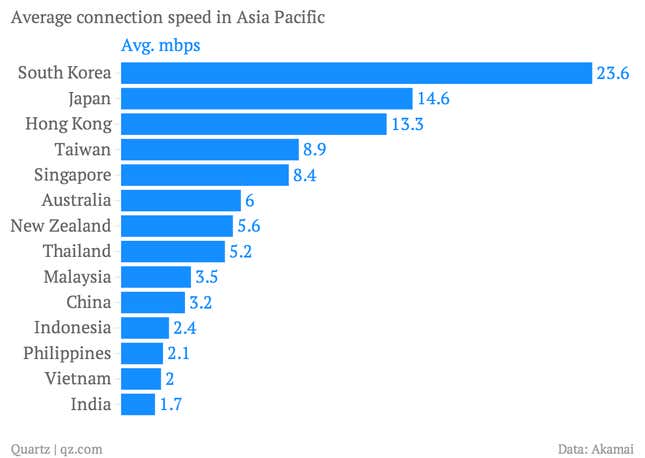It seems India can never get a telecom spectrum allotment right.
In February 2012, the Supreme Court cancelled 112 telecom licences granted in a botched 2008 allotment allegedly riddled with collusion and conspiracy. That event snowballed into an international dispute and companies from countries such as Russia, Norway and the UAE suffered losses on their investments in India.
That controversy, now known as the 2G spectrum scam, had broken into national attention after the government auditor, the Comptroller and Auditor General (CAG), raised questions about the allotment process. The legal proceeding in that case is still ongoing. It dealt a severe blow to the image of the Manmohan Singh government. Many important people, including the telecom minister, went to jail.
Now daily newspaper reports about a draft report by the same government auditor raise a whiff of yet another scandal in airwaves allotment, threatening to delay an ambitious telecom venture that was promising a dramatic improvement in broadband speeds.
Reliance Industries, owned by billionaire Mukesh Ambani, is the only company with access to nationwide fourth-generation (4G) telecom airwaves. It came into this enviable position thanks to its 2010 acquisition of Infotel Broadband within hours of that company outbidding others to win a slot and 4G spectrum in each of India’s 22 telecom circles.
It is supposed to revolutionise India’s broadband space by providing high-speed data connectivity. But now, the Comptroller and Auditor General (CAG) is reportedly working on a report, suggesting that Reliance’s licences be revoked because of irregularities in the process.
Among others, the auditor has pointed to three main points. Infotel, a small Internet Service Provider, was allowed to participate in the auction and bid an amount that was several times its own net worth. Adequate checks were not put in place at this stage by the department of telecom. No lock-in period was prescribed, unlike earlier auctions, and Infotel was allowed to immediately sell the spectrum and the license to RIL. At the time of the auction, the spectrum was meant to provide data services only. Subsequently, the government changed the rules to allow voice services on the same spectrum, conferring undue benefits on the winners.
A spokesperson for Reliance Jio said the media are jumping the gun.
“There is no draft or final CAG report that we are aware of. So-called suggestions by individual experts and auditors in CAG on a file are being passed off in sections of the media as the real thing.”
The company has also denied that it violated any rules during the broadband auction. ”The auction for the BWA spectrum held in 2010 was one of the most competitive auction in the Indian telecom history which fetched final bid price more than six times the reserve price for the pan-India spectrum. This was despite no visible evidence of any eco-system for the BWA spectrum at the time of the auction,” the spokesperson said.
Quartz reporters have seen a copy of what is purportedly a draft report of the CAG. We could not independently verify its authenticity. The CAG does not respond to questions on its audit reports in progress. When the report is finalized, the questions that have currently been raised may or may not be there. In the 2G spectrum case, the contents of the draft report were reported by the media. When the final report came out, the calculated notional loss from the botched auction had been estimated to be much higher than what was in the draft report.
Aam Aadmi Party leader and public interest lawyer Prashant Bhushan has already approached the Supreme Court against the government decision to allow voice services on the spectrum auctioned for data. With a CAG critique of the entire auction process coming out, now as leaks and possibly in future as a bonafide report, there is a high likelihood of lawsuits demanding scrapping of the license.
Meanwhile, Reliance has unveiled ambitious plans for the high-speed broadband service, which will offer upwards of 100 Mbps, or the ability to download a feature film in two minutes. The company is reportedly investing Rs70,000 crore ($11.6 billion) in the venture that aims to eventually reach India’s 600,000 villages. It also has plans to provide a suite of television content.
The planned service has the potential to radically transform the country’s broadband landscape. For now, users in Asia’s third largest economy have to suffer the lowest speed in the region. If Reliance Jio’s launch is further delayed due to legal entanglements—or a final CAG report that repeats the allegations— then users might have to continue the long wait for films to download.

